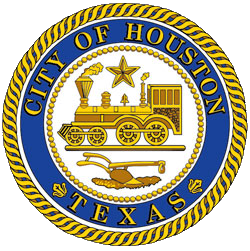Today, Mayor Sylvester Turner announced the City of Houston filed a lawsuit seeking a Temporary Restraining Order and Temporary and Permanent Injunctions against the Texas General Land Office (GLO) and GLO Commissioner George P. Bush. The lawsuit filed in a Travis County State District Court, asks a judge to prevent the GLO from illegally taking control of $1.27 billion in disaster relief funds allocated by the United States Department of Housing and Urban Development (HUD) for the City of Houston’s Hurricane Harvey homeowners assistance program.
“The GLO is playing politics with citizens who need their Harvey damaged homes repaired,” Mayor Sylvester Turner said. “I am disappointed the state agency is engaged in an illegal attempt to take control of the funds, without any regard to those who need help.”
The City of Houston strongly opposes the GLO’s proposal to eliminate all City-administered CDBG-DR 17 program funding for several reasons.
First, the City’s programs are successful and on schedule. For example, even though the City is only 1.5 years into its six (6) year grant:
- $446 million (35%) of total funds allocated to the City has already been designated for the specific properties or projects at which the assistance is to be used.
- $153 million (12%) is already under a signed contract that obligates its use to deliver recovery services, with more contracts being signed on a weekly basis.
- The City’s Single-Family programs have already fully served 234 homeowners, with another 246 families submitted to or approved by GLO and currently being served. At the current pace, the City will serve 1000 families for each of the next 4 years before the end of the contract, for an estimated total served of 4,480 families.
Second, the City’s programs are better and more appropriate for the citizens of the City than those the GLO has implemented.
Third, the GLO’s proposed amendment violates the terms of its subrecipient agreement.
- Section 2.03 of the Contract provides that amendments to increase or decrease the amount of the subaward must be made by written agreement of the parties and the City has not consented to any reduction in its subaward.
- Funding under the Contract has not been reduced or terminated.
- The City is performing under the terms of the Contract and has not defaulted under the Contract.
Finally, the GLO has demonstrated that it has a difficult time complying with HUD requirements and with establishing and communicating its own bureaucratic and confusing requirements to the City.
TIMELINE
Hurricane Harvey made landfall in the Houston area in August 2017. On February 9, 2018, the federal government allocated the total amount of $5.6 billion to the State of Texas for disaster relief efforts related to Hurricane Harvey.
In January 2019, the City entered into a binding contract with the GLO for the City to administer the housing programs to Houstonians for $1.17 billion. After completing a needs analysis to assist the most vulnerable populations affected by Harvey, including low income, disabled individuals and people of color, who are protected by the Fair Housing Act, the City implemented its programs.
In April 2020, Commissioner Bush advised the City that the GLO planned to eliminate all funding to the City under the contract and transfer all responsibility for administering disaster assistance to the City to the GLO – despite the City’s significant progress in managing the programs.
The City of Houston asks the court for a declaratory judgment that the GLO cannot eliminate the City’s CDBG-DR programs. The GLO’s parallel CDBG-DR program in the City is unlawful, and that the City is entitled to reimbursement for its previously approved expenses.
“The City has specifically created its programs to ensure that Houston’s most vulnerable residents are able to recover from Harvey. At the heart of the dispute with the GLO is whether the State will allow local control to meet the community’s priorities or whether the State can override the priority’s set by the local community.”
More information and a copy of the lawsuit is available here.
